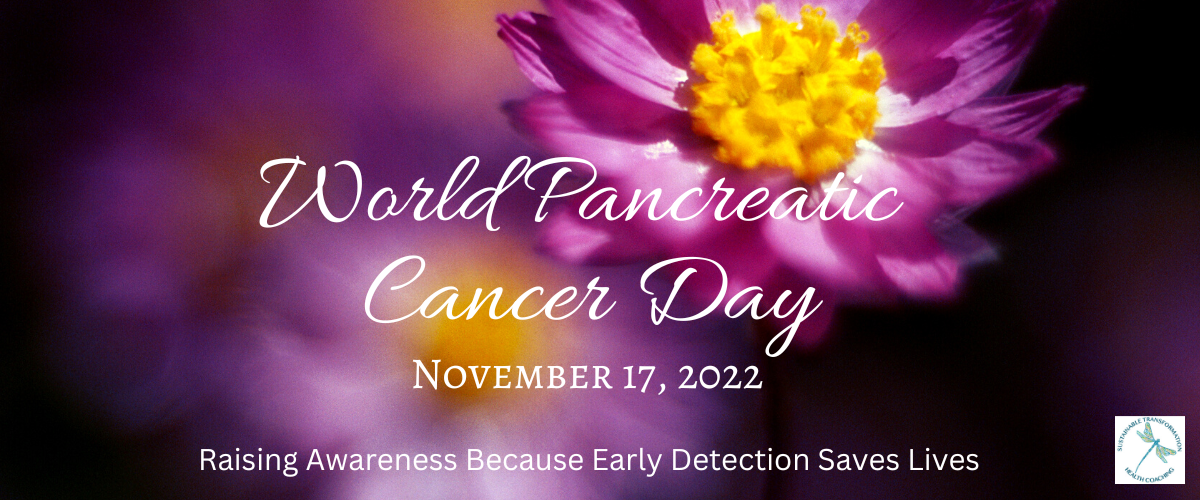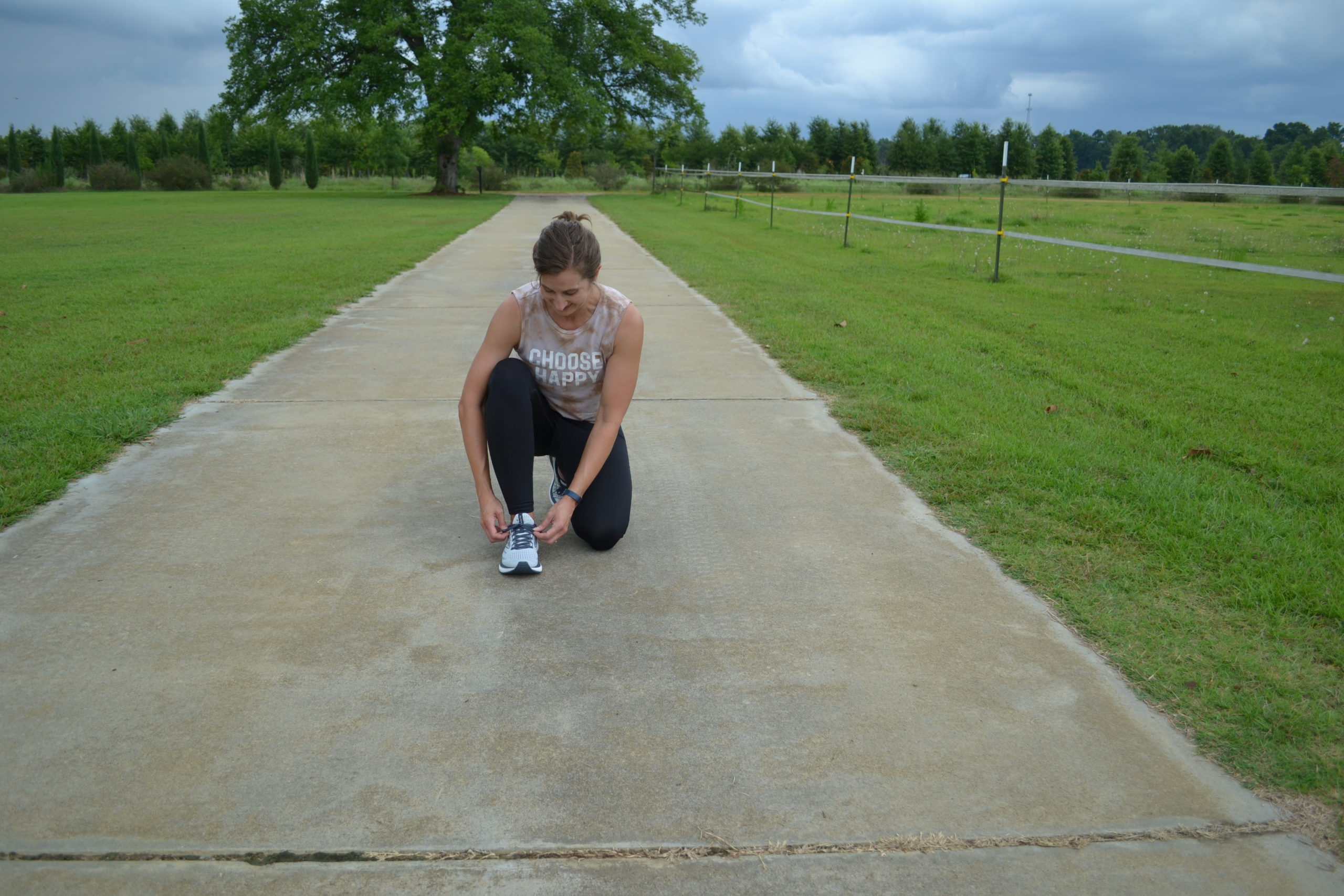
Today is World Pancreatic Cancer Day and a day I find important. It raises emotions because our family lost someone very dear to us and far too early to this disease. My grandmother, who we called Mammie, was an active lady in her mid 60’s when she was diagnosed with Pancreatic Cancer. Becoming a grandmother while still young allowed her the opportunity to not only enjoy grandchildren but also have the joy of great- grandchildren. She loved gardening, spoiling her grandchildren and great-grandchildren, being active in the church, traveling, and spending time with family. She had looked forward to retirement where she could spend more time doing the things she loved. That time was cut short due to her diagnosis. We have a very close family and were blessed to be by her side as she battled cancer. She fought hard and enjoyed each moment she could spend with family after her diagnosis. As her family, we had the blessing of being together and caring for her in her final days surrounded by a community that loved her. Today, in her memory, the topic is pancreatic cancer with the goal of raising awareness.
Awareness
Many times, the symptoms of pancreatic cancer are not caught very early. This is normally because it is not until other organs are involved that symptoms are noticed. For this reason, the prognosis can be poor. World Pancreatic Cancer Day was instituted to raise awareness and educate the public about the pancreas, risks for the disease, signs and symptoms that should be evaluated, and prevention.
What is the Pancreas?
“What is the pancreas?” is the first question that needs to be answered. The pancreas is an organ that is found in the abdomen surrounded by the stomach, intestines, and other organs. It produces “digestive juices” or enzymes that aid in digestion. It also produces hormones that aid in blood sugar control such as insulin. (1)
Risk Factors
The next question that needs to be addressed is, “What puts someone at risk for pancreatic cancer?” There are certain factors that can increase the risk of pancreatic cancer. Some of these factors can be changed while others cannot. Risk factors that can be changed are obesity, smoking, diabetes, and chronic pancreatitis due to lifestyle choices. Risk factors that cannot be changed include increased age, family history of pancreatic cancer, male gender, and chronic pancreatitis due to gene changes. (2)
Symptoms that Need Evaluation
It is also important to know symptoms that should be discussed with your healthcare provider. According to pancreatic.org, “The symptoms of pancreatic cancer are often vague and may at first appear to be associated with other less serious and more common conditions.” (3) Symptoms that should be evaluated include unexplained stomach and back pain, jaundice, loss of appetite, nausea, indigestion, changes in stool, and unexplained weight loss. If any of these symptoms are experienced, it is best to be evaluated by a healthcare professional.
Prevention
The last question to answer is, “How is pancreatic cancer prevented?” Several factors that can increase the risk of pancreatic cancer can be corrected or avoided. These factors include not smoking, maintaining a healthy weight, incorporating regular physical activity into your routine, avoiding or at least limiting alcohol, and limiting exposure to certain chemicals. Making lifestyle changes to correct this risk can be beneficial.
In closing, this post is to inform and raise awareness. Listen to your body. Early detection can save lives, so if you are experiencing concerning symptoms, it is best to be evaluated by a healthcare professional.
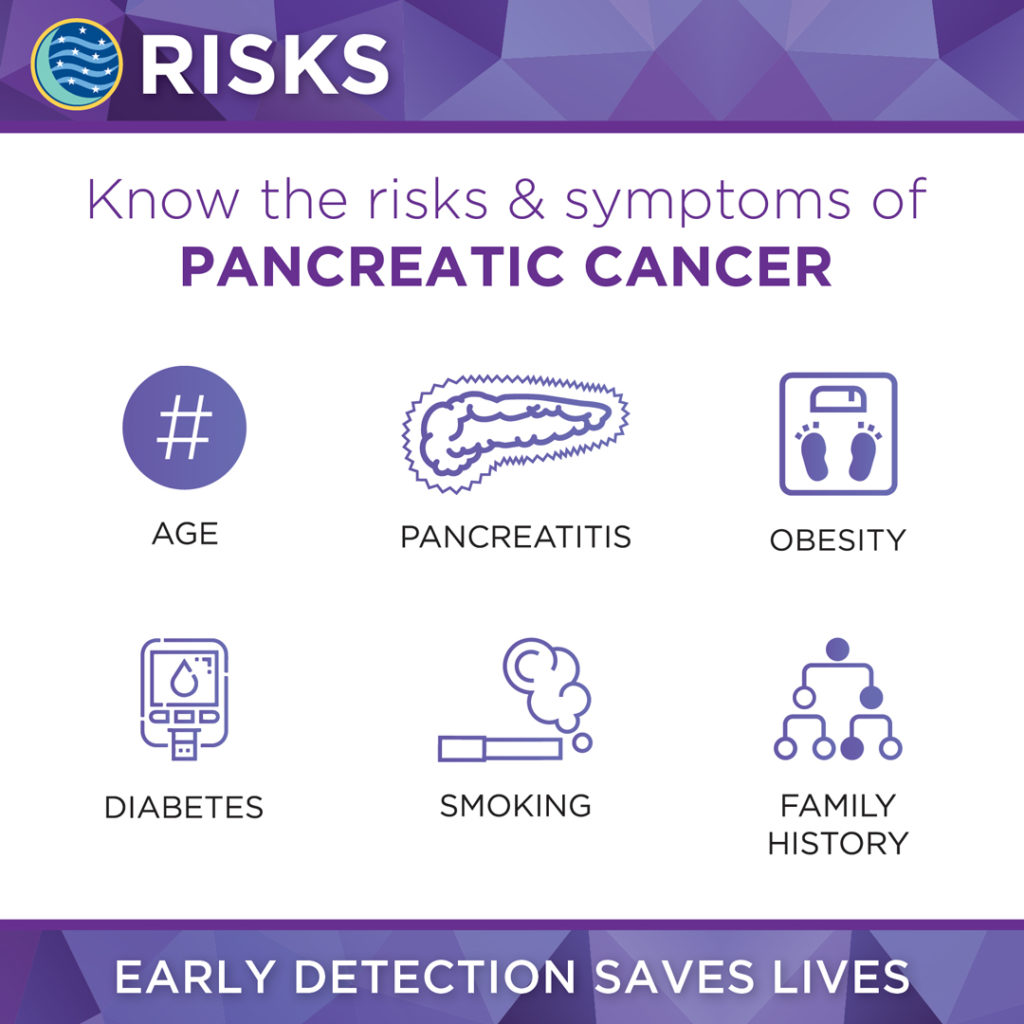
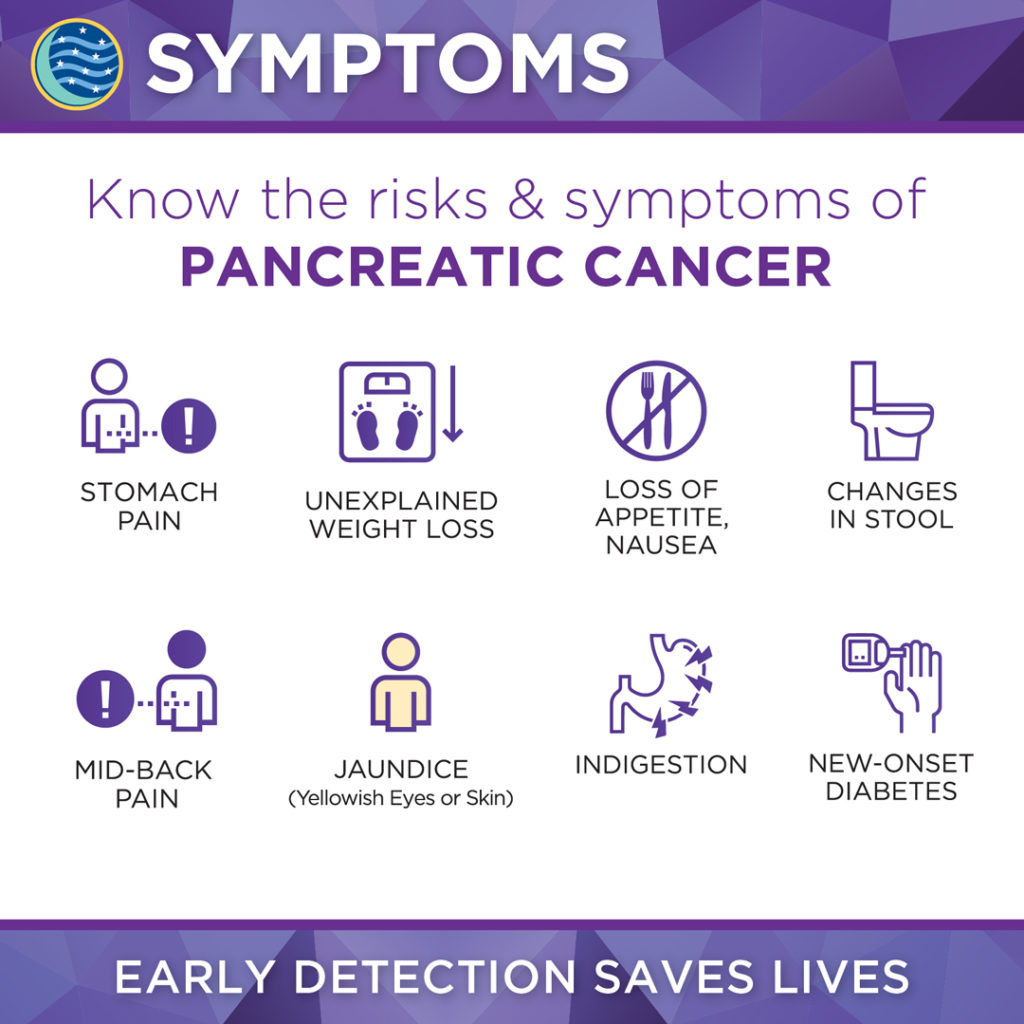
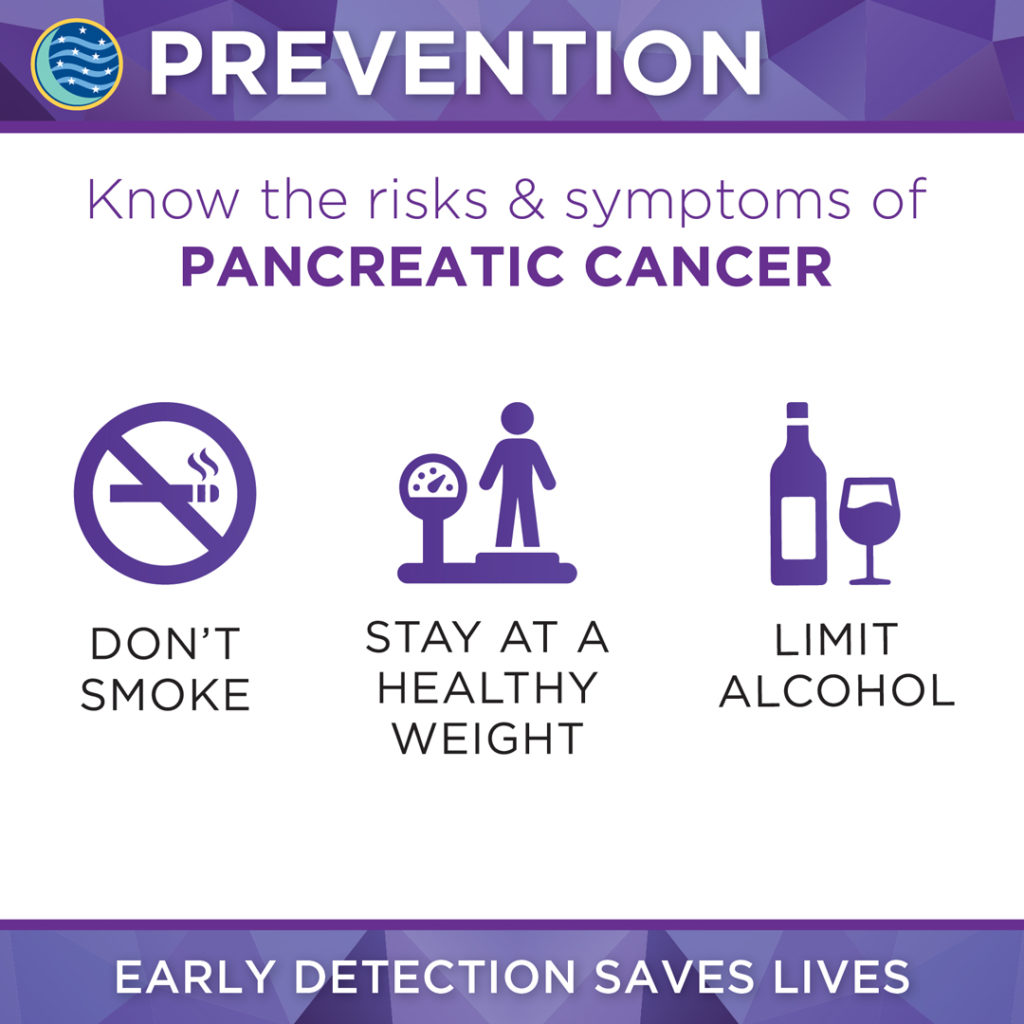
References
(1) Definition of pancreas – NCI Dictionary of Cancer Terms – NCI https://www.cancer.gov/publications/dictionaries/cancer-terms/def/pancreas
(2) Pancreatic Cancer Risk Factors – https://www.cancer.org/cancer/pancreatic-cancer/causes-risks-prevention/risk-factors.html
(3) November is Pancreatic Cancer Awareness Month – Hirshberg Foundation for Pancreatic Cancer Research https://pancreatic.org/november/
